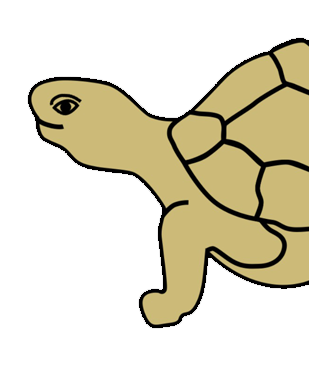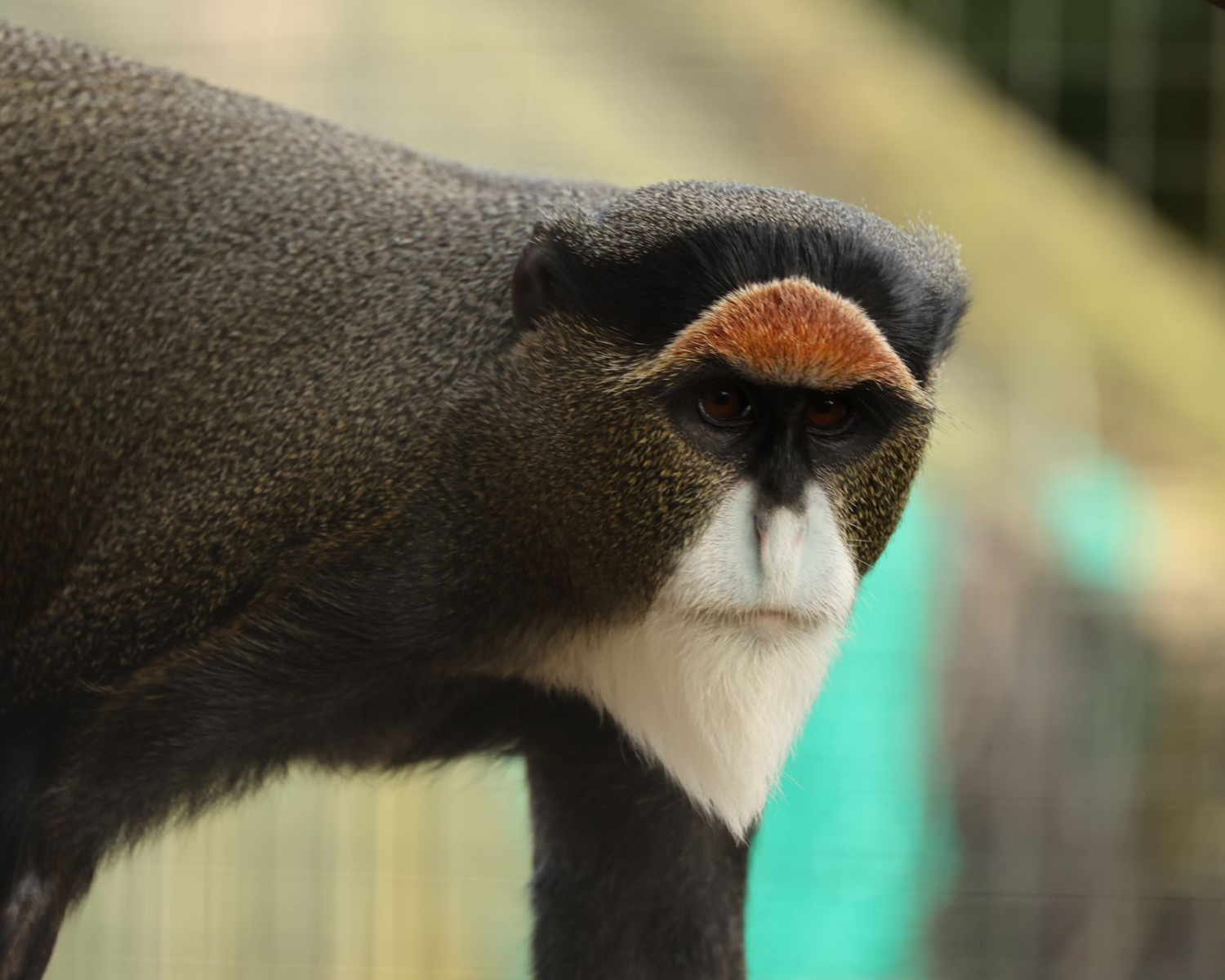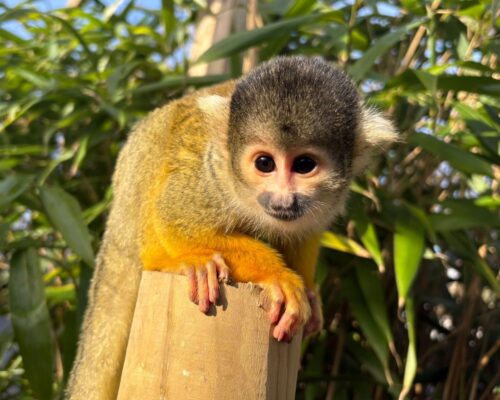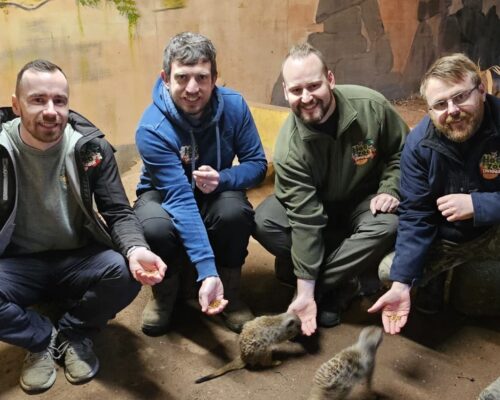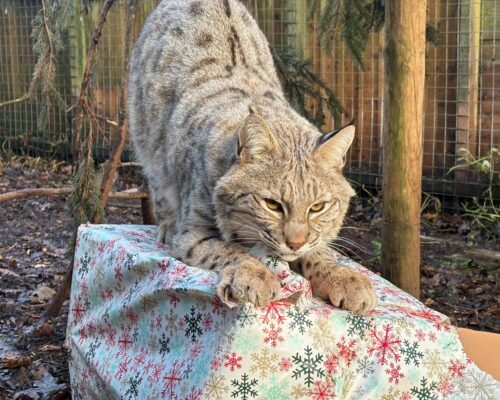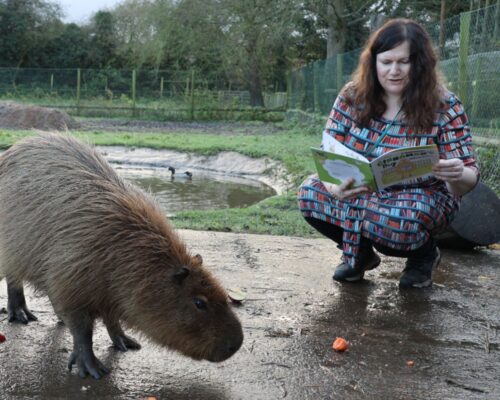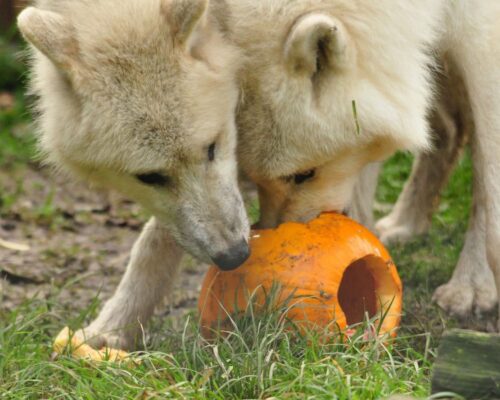Zoo Keepers at Hoo Zoo and Dinosaur World in Telford are celebrating after the arrival of a pair of ‘Swamp Monkeys’, making the zoo one of only seven zoological collections in the UK to currently keep the primate.
In the wild, De Brazza monkeys are typically found in swamp forests across central Africa, where locals often call them ‘the swamp monkey.’ These monkeys usually live in groups made up of a dominant adult pair and their offspring. The number of De Brazza monkeys in the wild are believed to be decreasing due to illegal smuggling and deforestation, and a captive breeding programme has been established by a number of European zoos to safeguard the species from extinction.
The pair to arrive at Hoo Zoo, are a mother and son pair consisting of thirteen year-old female, Neith and her five year-old son, Abeeku. It is hoped that an unrelated female will arrive at the zoo in the near future to breed with Abeeku as part of the European breeding programme to safeguard the species from extinction.
Hoo Zoo and Dinosaur World Director, Will Dorrell said, ‘’We’re ecstatic to be one of only a small number of zoos in the UK to be home to De Brazza monkeys, also known as Swamp Monkeys. We have built a specially designed habitat for them to exhibit their natural behaviors and hope that our pair will contribute to the overall long-term conservation of this species.”
‘’De Brazza monkeys are facing a number of challenges in the wild and we hope to be able to educate our visitors about the threats these animals find in their native territory. De Brazza monkeys usually live in groups, and we hope that our new male and female will be able to raise a family of their own in the future.’’
The move to bring the pair of Swamp Monkeys to Hoo Zoo and Dinosaur World has been made possible as a result of a corporate sponsorship donation from Tomato Energy which was given to Hoo Zoo to customise the habitat for arrival of the De Brazza monkeys.
